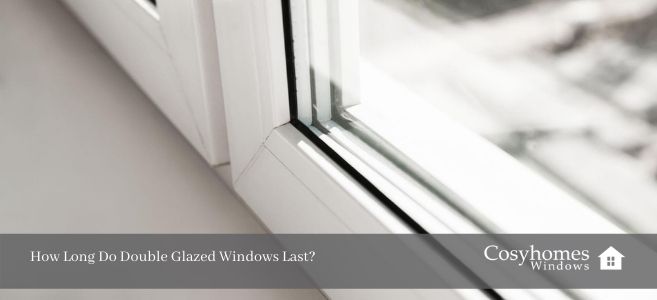It is a standard requirement that all windows in new-build homes are double glazed. However, if you live in an older property you may not have double glazing and, although it is an investment, the home improvement benefits are huge. These include heat retention, which in turn will reduce heating bills, noise reduction, and improve the security of your home.
In this article, we will look at how long double glazing lasts, how to pick the best double glazed windows, and signs that it may need replacing.
What is the lifespan of double glazing?
On average double glazing can last 20 years. And double glazing that is installed nowadays can even last up to 30 years. This depends on a few factors though such as;
- the standard of the installation
- the quality of the double glazed units – high-quality units will last longer
- the location of the windows – exposure to extreme weather conditions can cause them to expand and contract.
How to pick the best double glazed windows
When upgrading your windows, whether from timber windows to double glazed or replacing your old double glazed ones, how do you know what makes a good quality window?
There are several things to consider including;
- the style of your property
- the material of the window frame
- the type of glass
Choosing the right windows for your property is something that we can advise you on. We will offer you a full survey, templating, correct glass specification, delivery, and installation in one quote. There will be no hidden costs, just a complete price for our products and expertise.
The right windows will not only cut your heating bills but will help the environment too. Installing A-rated double-glazed windows could save you up to £115 per year.
Signs that the windows need replacing
As we mentioned earlier in this article, the average lifespan of double glazed windows can be up to 20 years. But that doesn’t mean they won’t need replacing sooner. There are some things to look out for that will indicate it’s time for replacement windows:
Drafty windows
If your windows are letting cold air in when closed they have become inefficient. This could indicate that the seals around your windows are broken or that there are gaps between the window panes. Not only will this lead to heat loss but the latter is also a serious security risk.
Visible damage
General wear and tear is normal over time as your windows are exposed to the elements. However if you notice damage such as cracks or rotting, this is a more serious problem. This visible damage will not only make your windows inefficient but can also affect the resale value of your home.
Condensation
Condensation on your windows and between the panes of glass is a common complaint for homeowners and isn’t something that you should ignore. Not only could it lead to health risks, due to mould developing around your window frames, but it can also cause your window frames to rot.
If any of the signs above sound familiar in relation to your windows, or you would like to discuss replacing or upgrading your windows, don’t hesitate to get in touch with us for advice.


















No Response to "How Long Do Double Glazed Windows Last?"